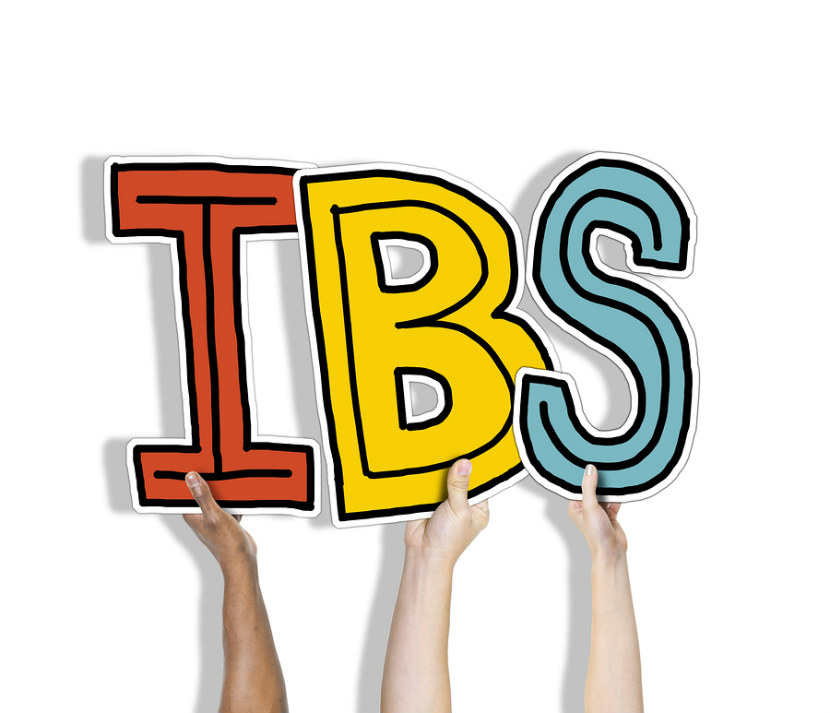
Do you suffer from stomach pains or cramping involving sudden trips to the bathroom? Do you know if you have irritable bowel syndrome (IBS)? Is it possible to reduce the symptoms associated with irritable bowel syndrome? Are there any foods that should be avoided? If you have any questions about irritable bowel syndrome read this factsheet to find out more…
What is irritable bowel syndrome?
Irritable bowel syndrome (IBS) is a fairly common gastrointestinal disorder. It is a chronic condition that can reoccur and interfere with your lifestyle. Typical symptoms include abdominal pain, cramping, bloating, and changes in bowel habits from sudden onset diarrhea to constipation. These symptoms are usually relieved after a bowel movement. In some cases IBS can occur after an illness involving fever, vomiting, or diarrhea. Bleeding and persistent severe pain are not symptoms of IBS, and may indicate other problems.
If you have these symptoms it is important to tell your doctor. Talk to your doctor before you start any kind of treatment.
What causes irritable bowel syndrome?
There is no specific cause of IBS but many people living with IBS appear to have a hypersensitive colon. A number of factors can contribute to IBS including worry and emotional stress. Eating, as well as certain foods and medicines, can trigger colon spasms and cause symptoms associated with IBS.
How can you reduce the symptoms associated with IBS?
-
A regular healthy eating pattern is important to reduce the sym ptoms related to IBS. Not overeating, especially fatty foods are an important first step. Eating foods high in fibre is another key step to take. Eating many small meals throughout the day or eating smaller portions at 3 main meals may also help.
To see if any particular foods cause problems, write down all of the foods you eat and record any discomforts. Before eliminating any foods consult with a Registered Dietitian to plan a healthy diet. Discuss your condition and treatment plan with your doctor.
What foods can you eat?
-
Different foods bother different people. What you can eat depends on how you react to different foods. The foods that most commonly cause problems for people with IBS are fatty foods, gas-producing foods, alcohol, caffeine, lactose, and wheat. For some people high fibre foods may cause discomfort. Eat fewer of the foods that cause you discomfort.
-
Get counselling before eliminating any foods as this might cause you to miss out on some important nutrients.
-
Make sure your healthy eating plan is based on Eating Well with Canada’s Food Guide.
-
Include vegetables, fruit, whole grains, low fat milk products and lean meat and alternatives.
Tips for managing your food choices:
Avoid fatty foods including high fat meats and deli products, high fat dairy products including cheese, ice cream, whipped cream, butter, margarine, deep fried foods like French fries and battered fish and fried chicken, pastries, cookies, chips and other snack foods. Have more lean meat, fish and poultry choices, cooked by lower fat methods. Choose lower fat milk products with 2% or less milk fat. Avoid high fat snacks.
Gas producing foods such as beans, Brussel sprouts, onions, celery, carrots, cucumbers, raisins, bananas, prunes and wheat may cause excess gas and bloating. Find out which foods cause your gas by writing down the food you eat for a few days in a row. If these foods do not bother you, there is no need to avoid them.
Dairy products including milk, cream, and some cheeses may cause IBS symptoms in some people. Milk products may cause fewer symptoms when eaten in small amounts or when eaten with other foods (e.g. milk with cereal). Look for low fat milk products (1% or skim milk)) and lower fat cheese. Try yogurt, which often causes fewer symptoms than milk for people with IBS. If you avoid all milk products speak to a Registered Dietitian about alternate foods sources and supplements as these foods are key sources of calcium and vitamin D.
Fibre may help reduce IBS symptoms but can cause some initial discomfort with gas and bloating when fibre intakes are increased. To reduce symptoms, increase fibre slowly and drink plenty of water. These symptoms should go away after a few weeks. Fibre helps keep the digestive sytsem moving and keeps stools soft. Fibre is found in whole-grain breads and cereals, oats, beans, fruits, and vegetables. You need to get adequate fluids to help the fibre work properly. Consult your doctor before using any fibre supplements.
Plenty of Fluids are important especially when you are constipated or have diarrhea. Avoid drinking too many high sugar beverages, caffeine and alcohol. Avoid carbonated beverages that can cause bloating. Drink water when thirsty and when adding more fibre to your diet.
Eat meals in a relaxed atmosphere. Chew foods slowly without gulping in air to reduce bloating. Cut back on chewing gum as this also reduces air intake. Avoid eating too many products made with artificial sweeteners containing sugar alcohols (e.g. mannitol, sorbitol, xylitol) or polydextrose as these may cause bloating, gas or diarrhea.
Do people with IBS also have lactose intolerance?
People with IBS are not more likely to have lactose intolerance. People with lactose intolerance have difficulty digesting some milk products. Individuals diagnosed with lactose intolerance may benefit from lactose restriction.
You might also be interested in:
Managing Inflammatory Bowel Disease
Tips for Healthy Digestion
Last Update – August 9, 2017